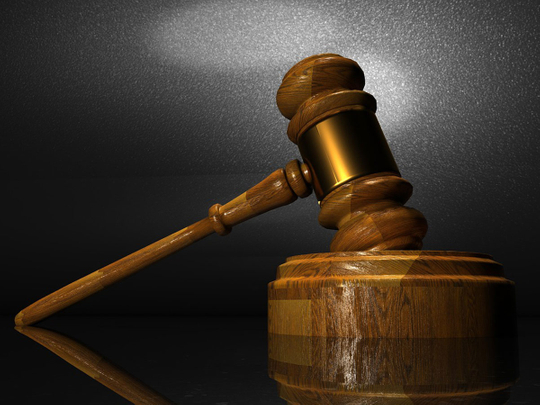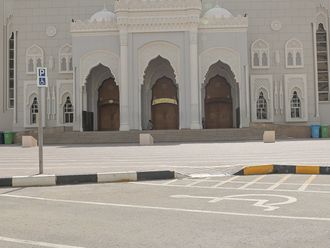
Question: I have been having a problem with my wife for more than five years now and I am deeply affected by it. My wife refuses to give me a divorce and I cannot legally prove the harm she has caused. Given the religion that both my wife and me belong to, it is difficult to get a divorce. Is there a solution for me according to UAE law? Please advise.
Answer: UAE residents, including Muslims and non-Muslims, can apply for divorce in UAE courts. The relevant parties may ask to apply their own laws to personal status matters or agree to submit to UAE law. Article 1 of the Federal Law No 28 of 2005 for Personal Affairs states: The provisions of this law shall apply to citizens of the United Arab Emirates State unless non-Muslims among them have special provisions applicable to their community or confession. They shall equally apply to non-citizens unless one of them asks for the application of his or her law.
As per UAE law, each of the two spouses is entitled to request for divorce due to prejudice that is making the continuity of the friendly companionship impossible. The first step is to register the case by either party at the Family Guidance Section at the respective judicial department in one of the emirates. A court-appointed conciliator will try to reconcile the divorcing parties. The conciliatory procedure is a mandatory process of divorce proceedings in the UAE. Parties are allowed to raise their concerns pertaining to the marriage in the absence of their respective legal representatives.
Amicable divorces can be concluded at this stage. Parties will need to draft a settlement based on the parties’ mutual understanding and sign it before the conciliator.
If one of the parties or both of them are determined about the divorce, then the conciliator will provide the claimant with a referral letter, permitting them to proceed before the court to conclude their divorce case. Once in court, the particulars of the divorce case become part of the court’s discretion and each party has to provide evidence to support one’s claim against one another as well as in their own defence. The prejudice shall be established by legal means of proof and by the court judgments rendered against one of the spouses. Hearsay testimony is also accepted.
Article 118 of the law states that in case the prejudice is not established or proved, the lawsuit shall be rejected and if the discordance is still continuing between the spouses then the aggrieved party may file a new lawsuit. (Nevertheless, the judge may, after listening to both the spouses, accept the divorce petition without filing another claim). If the Family Orientation Committee as well as the judge are not successful in reconciling them, the judge shall issue a judgement appointing two arbitrators. The arbitrators appointed by the court is under an obligation to issue an order within 90 days from the date of appointment.
According to Article 120 of the new law, if the parties fail to reconcile even then, and if it is proven to be the husband’s fault, then the wife can seek divorce and other financial rights. If it is proven to be the wife’s fault, then she will be given divorce upon paying a certain amount of compensation. Or, unless the husband requests to maintain the marriage, the court, subject to the court’s discretion in preserving the marriage, can reject the divorce plea.
If both the parties are at fault, the arbitrator can recommend divorce without compensation or with compensation on a pro-rata basis to the other party who is less guilty.
A bounced guarantee cheque
Question: I had received a cheque from someone. Upon submission at the bank, it was clear that the account of the cheque issuer had been closed. On the back of the cheque, it is mentioned ‘guarantee cheque, not exchangeable’. My question is, do I have the legal right to open a criminal case or file a civil suit with this phrase written on the back of the cheque? Please advise.
Answer: I would like to clarify the questioner that Article 401 of the UAE Penal Code states: ‘[One] Shall be sentenced to detention or subject to a fine if he or she draws a cheque in bad faith, without sufficient funds, or who, after issuing the cheque, withdraws all or part of the funds, so that the remaining balance is insufficient to cover the amount of the cheque, or issues orders to the drawee to stop payment, or if he or she deliberately writes or signs the cheque in such a manner so as to make it non-payable.’
In your case, you can file a criminal case even if this statement [‘guarantee cheque, not exchangeable’] is written on the back of the cheque because from a criminal perception, the crime of issuing a cheque without balance, as stipulated in Article 401 mentioned above, does not require, for its verification, to discuss the reason for issuing the cheque — whether it was given to the beneficiary as a guarantee or any other reason as long as it, when presented to the drawee bank, fulfilled its legal commitments. The criminal court deals only with the criminal act of drawing a cheque without sufficient balance. It does not need to look into the cause behind it.
It has been decided by Dubai Supreme Court that the reasons behind the issuance of the cheque have no effect in establishing criminal responsibility. Writing the word ‘guarantee’ on the cheque has no effect on the crime. (Cassation No 404/2015/Penalties.)
The cause of drawing the cheque is checked by the civil court. From the civil court’s perception, the basic principle behind the cheque is that it is a debt fulfilment instrument for the drawer before the beneficiary, but it can also be issued as a guarantee and in case of a bounced guarantee cheque, it will be considered as a breach of commitment by the drawer towards the person to whom he or she had issued the cheque as a guarantee.
You have the right to file a civil case, but, at the same time, you will be responsible to prove that the cheque was not in reality a guarantee instrument, unlike what was mentioned on the back of the cheque, but a fulfilment instrument and leave the decision with the civil court, after checking the documents submitted by defence.
It is to be decided in court that “the cheque is a tool to fulfil a debt owed by the drawer to the beneficiary. However, giving the cheque to him or her may not be the fulfilment of a debt, but it may only be by way of guarantee. So, if it is proved that it is by way of guarantee then the obligation to pay its value to the beneficiary is suspended on a condition and its effect is stopped until this condition is fulfilled. In this case, the burden of proving the fulfilment of this condition and the enforceability of the drawer’s commitment to pay the cheque value to him or her falls on the beneficiary. (Cassation No 2003/596 Rights).








